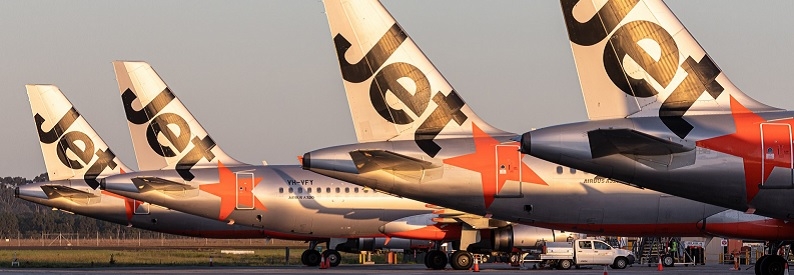Jetstar Asia Exit Cuts 16 Routes From Singapore Hub

Jetstar Asia’s upcoming closure on July 31 will significantly reshape Singapore Changi Airport’s network, removing 16 intra-Asia routes and reducing regional access to several key leisure and secondary destinations across Southeast and East Asia. The shutdown, which marks the end of Jetstar Asia’s 20-year presence in Singapore, will result in the loss of nonstop flights on four routes that currently face no direct competition. According to OAG Schedules Analyser data, these unserved destinations are Broome in Australia, Labuan Bajo in Indonesia, Okinawa in Japan, and Wuxi in China. The closure leaves these cities disconnected from Singapore’s international network, at least temporarily.
The loss of Labuan Bajo is particularly notable as the destination, often called the “new Bali,” was only added to Jetstar Asia’s schedule in March as part of Indonesia’s broader strategy to diversify its tourism offerings. Similarly, Broome, located in Western Australia’s Kimberley region, was one of the few Singapore-Australia routes not serving major cities, offering a unique link between the two regions.
Jetstar Asia had been scheduled to operate 2 million seats during the 2025 summer season, representing a 24% increase from 2024. The airline also planned to restart seasonal flights to Clark in the Philippines this December after temporarily suspending the route in May. Had the carrier remained operational, it would have ranked as the third-largest operator at Changi Airport this summer, with nearly 947,000 departing seats and a 3.8% market share, trailing only Singapore Airlines and its low-cost subsidiary Scoot, which hold 36.5% and 16.9% market shares, respectively.
Despite its network size, Jetstar Asia was not the dominant airline on any of the 12 routes where it faced competition, including high-frequency markets such as Bangkok, Kuala Lumpur, Jakarta, and Manila. These routes are heavily served by both Singapore Airlines and Scoot, which have built strong positions in the region’s key travel markets. The highly competitive environment made it increasingly difficult for Jetstar Asia to sustain profitability as costs rose and market pressures intensified.
In preparation for the July 31 shutdown, Jetstar Asia has already begun scaling back operations across its network. Service to Bangkok will drop from 28 to 16 weekly flights, Denpasar Bali from 28 to 15, Jakarta from 21 to 10, and Kuala Lumpur from 21 to 14. Routes to Krabi, Penang, and Medan will be canceled entirely by mid-July, while Manila flights will be reduced by half. Phuket frequencies will also decrease gradually from 19 to 7 weekly flights before full suspension. Other routes, including Colombo, Surabaya, Manila, Osaka Kansai, and the four unserved destinations, are scheduled to operate through July 31, though additional changes may occur before the final day of operations.
While Jetstar Asia winds down, flights operated by Australia-based Jetstar Airways and Jetstar Japan will continue unaffected. Jetstar Asia’s fleet of 13 Airbus A320s will be redeployed across Qantas Group’s domestic and regional networks in Australia and New Zealand, as Qantas focuses on streamlining operations and consolidating resources in its core markets.
Related News : https://airguide.info/?s=Jetstar
